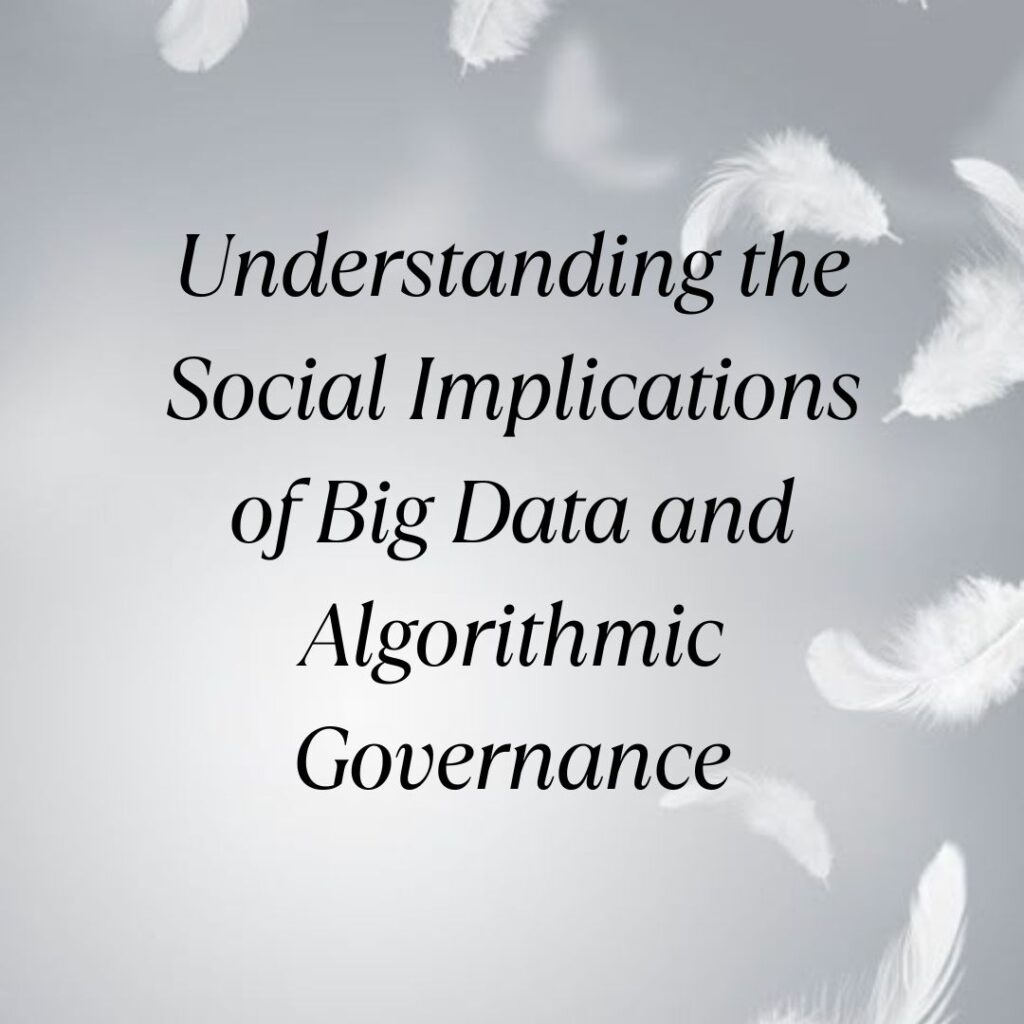In our increasingly digital world, the intersection of big data and algorithmic governance has profound implications for society. From influencing policy decisions to shaping individual behaviors, these technologies wield significant power that merits deeper exploration.
What is Big Data?
Big data refers to vast sets of information that are analyzed computationally to reveal patterns, trends, and associations, especially relating to human behavior and interactions. This data is collected from various sources, including social media, IoT devices, financial transactions, and more. Its sheer volume, velocity, and variety present both opportunities and challenges in understanding and managing societal issues.
The Rise of Algorithmic Governance
Algorithmic governance involves using algorithms and computational models to make decisions traditionally made by humans. These algorithms can range from determining personalized advertisements to influencing judicial sentencing and resource allocation in public services. The promise lies in efficiency and objectivity, but concerns about transparency, accountability, and fairness abound.
Social Implications Explored
- Privacy and Surveillance: The collection and analysis of big data raise serious privacy concerns. For instance, social media platforms track user interactions to tailor ads, but this data can also be used for more intrusive surveillance purposes, as seen in controversies surrounding data breaches and unauthorized data mining.
- Bias and Discrimination: Algorithms can inadvertently perpetuate biases present in the data they analyze, leading to discriminatory outcomes. For example, biased data used in predictive policing algorithms may disproportionately target certain communities, exacerbating social inequalities rather than alleviating them.
- Political Manipulation: Big data analytics are increasingly used in political campaigns to target specific demographics with tailored messages. The Cambridge Analytica scandal highlighted how personal data harvested from social media profiles was used to influence voter behavior, raising ethical concerns about electoral integrity.
- Healthcare and Public Services: Algorithmic governance is also transforming healthcare delivery and public services. While predictive analytics can optimize resource allocation and improve patient outcomes, decisions based solely on algorithms may overlook contextual nuances crucial for fair and equitable treatment.
- Ethical Dilemmas: The rapid adoption of big data and algorithmic decision-making poses ethical dilemmas that challenge existing legal frameworks and societal norms. Questions arise about consent, autonomy, and the right to explanation when automated systems influence critical aspects of our lives, from credit scores to job opportunities.
Examples in Practice
- Social Credit Systems: In China, the Social Credit System uses big data and algorithms to assess citizens’ trustworthiness based on their social behavior, influencing access to services and opportunities.
- Algorithmic Hiring: Many companies use AI-powered algorithms to screen job applicants, potentially perpetuating biases if not carefully designed and monitored.
- Criminal Justice: Predictive algorithms in the criminal justice system are used to assess the likelihood of reoffending, impacting sentencing decisions. However, concerns about fairness and transparency persist.
Relevance to Today’s World
In the wake of global events like the COVID-19 pandemic, big data analytics played a pivotal role in tracking and managing outbreaks, demonstrating the potential for positive societal impact. However, such technologies also underscored the need for robust ethical guidelines and safeguards to protect individual rights and freedoms.
Conclusion
As big data and algorithmic governance continue to evolve, understanding their social implications is crucial for policymakers, technologists, and society at large. Balancing innovation with ethical considerations remains a pressing challenge in harnessing the transformative power of data-driven technologies while safeguarding fundamental human values. By fostering transparency, accountability, and inclusivity in their development and deployment, we can strive towards a future where technological advancements benefit all members of society equitably.






